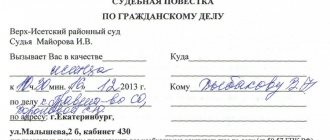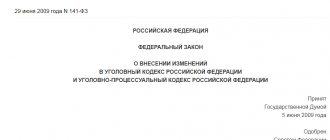If information has been disseminated about you that does not correspond to the real state of affairs, which discredits your honor and dignity, as well as your good name, obviously, you have become a victim of a criminal act provided for by the Criminal Code of the Russian Federation. We are talking about criminal libel.
To bring a slanderer to justice and to protect one’s own name, it is necessary not only to correctly classify criminal actions, but also to prove guilt using evidence. So, today we will tell you how to prove libel in court and where to write a statement about the crime.
When is it necessary to write a counter-report to the police for libel?
Liability for libel is provided for in the criminal legislation of our country.
The victim has the right to file an application under Article 128.1 of the Criminal Code of the Russian Federation. The commission of this illegal act means the dissemination of information about a person that discredits his honor and dignity, since it does not correspond to reality. In addition to the standard situation where one person will slander another, it is also possible that a citizen is deliberately accused of something he did not do. In such a situation, it is necessary to protect your rights, for which you write a counter-statement against the applicant.
The refutation is submitted to the same authority where the initial appeal was submitted. It is worth noting that the legislator provides the opportunity to contact the police, prosecutor's office or court. The submitted counter-complaint and the original application will be considered by authorized persons within the same process.
In order to refute slander, you will need to draw up a paper in accordance with all existing rules. It is also necessary to indicate the evidence on the basis of which you will refute the accusation. In this situation, it is best to contact a professional lawyer who will help you draw up a statement, select the necessary evidence and defend your interests in court.
Interpretation of the Resolution of the Plenum of the Armed Forces of the Russian Federation
In order to accurately determine that the perpetrator can be prosecuted for libel, it is necessary to clarify some concepts that are interpreted by the Resolution of the Plenum of the Armed Forces of the Russian Federation. Thus, unfounded information should be disseminated in the following ways:
- publication in the media or on the Internet;
- radio or television message;
- exposure in television programs and other sources;
- content in public reports, statements and characteristics that are addressed to a circle of people or an official;
- content in an oral message that is delivered to at least one person.
The criminal article also provides for aggravating circumstances related to the signs of a crime:
- public expression (media, various literary works, speeches and reports);
- use of one’s own status, namely official position;
- if there is dissemination of information about a dangerous disease that poses a threat to others;
- unconfirmed information about a person committing criminal acts (grave or especially grave, or of a sexual nature).
Basic parameters of the claim
By means of a counter-statement, you can respond to slander against yourself. This can happen in a situation where, after a conflict, one of the parties calls the police and points to you as the person who committed the illegal act. In such a situation, in order to refute the accusation, you must write a counter-complaint.
You can respond to attacks against yourself by sending a statement by mail or personally presenting it to the police department. When sending by mail, you must keep a receipt indicating the successful completion of the operation. The letter must be registered with return receipt requested. If you personally take the complaint to the police department, you can submit it at the office, and you need to receive a coupon on which the registration number is indicated. The claim is filed at the place of residence of the other party.
The application must contain:
- name of the authority where the paper is submitted;
- information about the author of the application;
- the circumstances under which the dissemination of untrue data occurred;
- an indication that the data that has been distributed is not valid;
- details of the person who discredited the honor of the victim, including surname, initials and address;
- date of preparation and signature of the applicant (at the end of the document);
- a note that the applicant is familiar with criminal liability for knowingly false denunciation.
Important! Police officers do not have the right to refuse to accept an application. Otherwise, the decision can be appealed to higher management, the prosecutor's office or court.
Methods of proof
If you have become a victim of slander, then first of all you need to seek protection of your rights, since in this case your honor and dignity suffer. The victim of a criminal attack is very worried, experiences anxiety and stress - all characterize moral damage. Therefore, if law enforcement authorities refused to initiate a criminal case or an acquittal was rendered, the victim always has the right to bring a civil claim.
The evidence base includes:
- Accusations that have no basis - false information not supported by any facts.
- Motive for committing a crime. What is characteristic of slander is that the attacker has certain goals: to dishonor a person, to expose his reputation in a bad light, so that the victim feels humiliated and insulted.
Taking this into account, the injured party must prove that the information is untrue and that there was a bad relationship with the slanderer (perhaps feelings of envy, performance of official duties, etc.).
The main rule of proof is that the burden lies on the injured party, so if there are doubts or lack of evidence, it is better not to apply to protect your rights. Otherwise, if an acquittal is made, the person who was illegally prosecuted has the right to demand compensation for moral damage.
The following video will tell you more about what libel is and how to prove it:
Witness's testimonies
Finding witnesses is the primary task in proving libel. Testimony is given in court under oath in favor of the injured party. However, if such people were not immediately found, there is no need to despair. In cases of dissemination of false information, the “repetition” rule applies - if this happened at least once, then perhaps there will be a second time. Therefore, it is necessary to carefully prepare for a new attack.
If slander occurs at work, then colleagues can be witnesses; if at home, then neighbors, friends or relatives can hear the defamatory information. If the witnesses were unfamiliar passers-by, then you should use every possible means to find them and record all the information about them. These people can subsequently act as witnesses to a crime, giving only truthful testimony in court.
Read below about how to prove libel without witnesses.
No witnesses
In case of repeated cases of slander, it is possible to use technical means of recording (dictaphone, audio player, mobile phone), which make it possible to record defamatory information coming from the mouth of the slanderer.
In cases of libel, if the dissemination of information took place without the presence of third parties who could confirm this fact, a linguistic examination is of great importance. It is necessary in cases where defamation is contained in written sources, audio and video recordings. Experts examine all possible material evidence:
- letters, magazines, leaflets - for studying handwriting;
- media with audio and video files - for studying the speech of the slanderer (use of certain phrases and set of words, obscene expressions, expression of speech).
The use of such an examination makes it possible to identify the guilty person and solve the crime, even without a confession.
Evidence of slander is:
- all kinds of devices for sound and video recording;
- if the slander was public or on the Internet - clippings from printed publications, links to the source indicating the site and author;
- witness's testimonies.
Responsibilities and rights of the parties
Procedural possibilities are defined at the legislative level. Including such a figure as the victim, who is the person who suffered damage due to an unlawful act. In order to obtain such status, it is necessary for the investigator to issue an appropriate resolution.
It is worth noting that the legislative norms in the CIS countries are almost similar; in particular, similar rights and obligations apply on the territory of Ukraine. The rights of the victim include:
- know what charges have been brought;
- provide evidence;
- give evidence;
- get acquainted with the case materials;
- use the services of a translator;
- have the opportunity to act through a representative;
- take part in actions carried out by the investigator;
- receive copies of resolutions that have been adopted in relation to him;
- file complaints against the person conducting the investigation;
- other rights.
Responsibilities include:
- come when called by the person conducting the investigation;
- give evidence that is true;
- not to disclose information that became known to him in connection with the investigation;
- take part in examinations.
The accused also has rights and obligations, these include:
- raise an objection to the charge that has been brought;
- file complaints and petitions;
- use the services of a defense attorney free of charge;
- have a private meeting with the defender;
- participate in actions carried out by the investigator;
- get acquainted with the case and others.
What is the crime
Creating and disseminating deliberately false information about facts from the life of another person with the aim of harming him is the brief essence of the crime. It should be distinguished from defamation, which is a mixture of fiction and truthful information, while slander is deliberately false.
To make punishment for slander possible, the information must be:
- false;
- cause moral suffering, humiliation, and infringement of rights.
For example, wanting to take a higher position, a colleague spreads rumors that the person occupying it was caught in theft or theft, and cases of theft of material assets of employees began to appear in the company. In such a situation, we can talk not only about moral suffering, but also about real damage caused by dismissal.
Due to the popularization of the Internet, distributing any information is not difficult. This method is actively used in quarrels between spouses, friends and other people who have certain social connections with each other. However, it is difficult to find acceptable evidence of the dissemination of such information.
Representatives of law enforcement and other agencies that protect the law stand apart. There is a special article for slander and insult against them.
Confirmation of facts
There is no approved sample claim in the legislative norms, while in practice forms of the form have been developed in accordance with which the document in question must be drawn up. In order to terminate the case against yourself, it will be necessary to carry out work aimed at finding and establishing evidence of innocence.
Dismissal of a case may be based on the same evidence provided by the other party. These include witness testimony, expert opinions, etc. It will be necessary to prepare for the court hearing, including the assistance of a professional lawyer. If the slander involves a fight or other use of violence, then you need to find witnesses who will confirm that you were attacked, and not you. You also need to undergo an examination confirming the presence of physical injuries. It is best to go through it in the first hours after the incident. In this case, there will be less opportunity to challenge this evidence.
Counterclaim for libel
In order to be able to defend their rights, every citizen must know how to respond to slander with slander. This is necessary to restore justice and protect an innocent person from unlawful accusation.
A refutation cannot be filed independently, because this document is a response to an initially submitted statement accusing the citizen of libel. In the future, such cases are considered during one trial.
| Pass during quarantine | Payment and registration of sick leave during quarantine |
| Article 6.3 of the Code of Administrative Offenses | Article for violating the self-isolation regime |
- Didn't find the answer to your question? Find out how to solve exactly your problem - call right now:
- Federal number -
- Moscow region, Moscow -
- Leningr. region, St. Petersburg -
- It's absolutely free and fast!
Submission conditions
The possibility of filing a counter-statement with the police is mentioned in Part 5 of Article 321 of the Criminal Procedure Code of the Russian Federation. According to it, a citizen has the right to file a counter-application with the police if he believes that the application filed against him is a manifestation of slander or slander, during the period of time when police officers are conducting a pre-trial investigation into the filing of the first application.
Those. a citizen can submit a counter-complaint to the police during the period when its employees are conducting a pre-trial investigation into the case of the initially filed application and the case has not yet reached the court. During this period, as a rule, evidence is collected, facts are checked, testimony is obtained, etc.
What is libel in the Criminal Code of the Russian Federation?
Criminal law recognizes as libel any dissemination by a person of knowingly untrue information that negatively affects the honor, dignity and reputation of another citizen. According to paragraph 7 of the Resolution of the Plenum of the Supreme Court of the Russian Federation No. 3 “On judicial practice in cases of protecting the honor and dignity of citizens,” the following is recognized as distribution:
- publication of false information in print, television, radio and online media;
- dissemination of information by any other means of television and radio communications;
- voicing information in speeches to an unlimited number of people;
- indication of information in published memos and certificates;
- indication of such information in applications to officials;
- communication of such information to at least one person whom it does not concern.
The communication of such information to anyone is not considered libel if the distributor ensured that it was not disseminated to an unlimited number of persons. Any information that did not exist in reality at the moment designated by the slanderer can be considered untrue. The following statements are considered defamatory:
- about a person’s violation of the law;
- about committing a negative act;
- about unworthy behavior contrary to ethics;
- about dishonest attitude towards the fulfillment of professional, official or other obligations, towards entrepreneurship;
- about non-compliance with the rules of business ethics and turnover and other facts.
Provided that they negatively affect the honor, dignity and business reputation of individuals and legal entities.
Note!
Value judgments and beliefs of another person, which are a clear expression of his subjective opinion, position and views, should be distinguished from slander.









